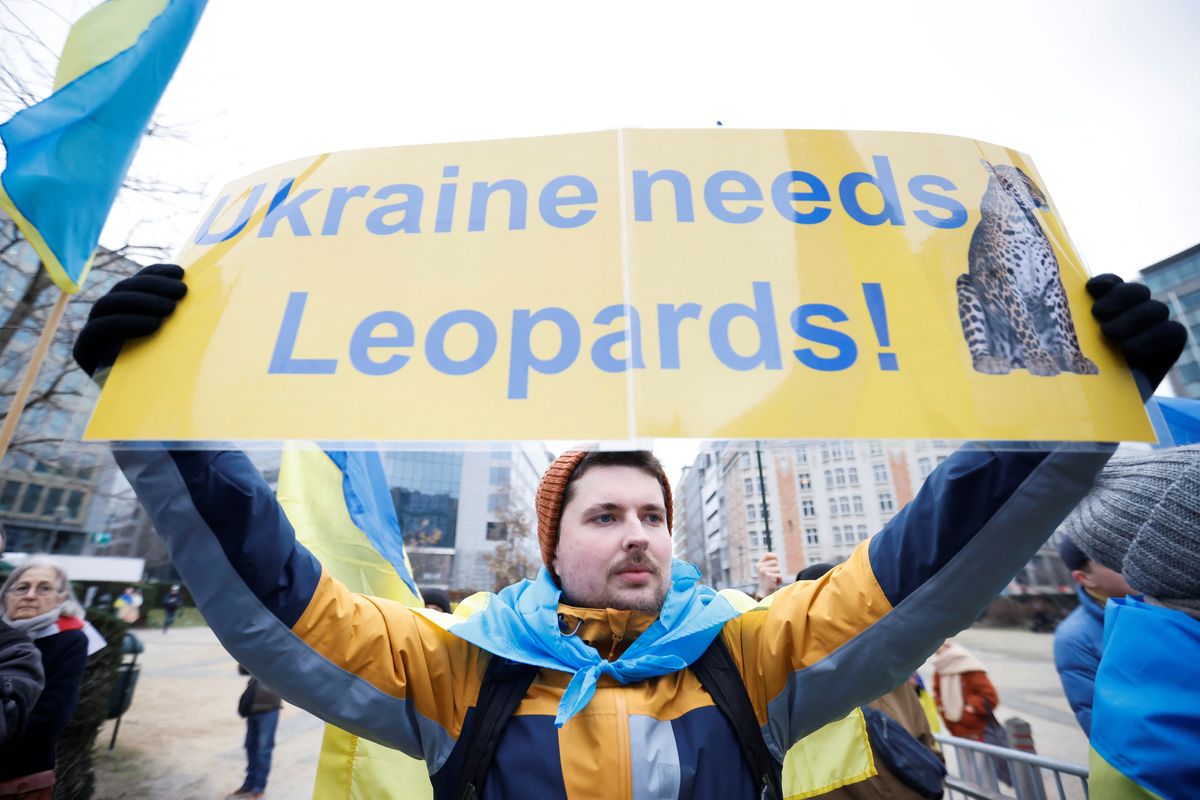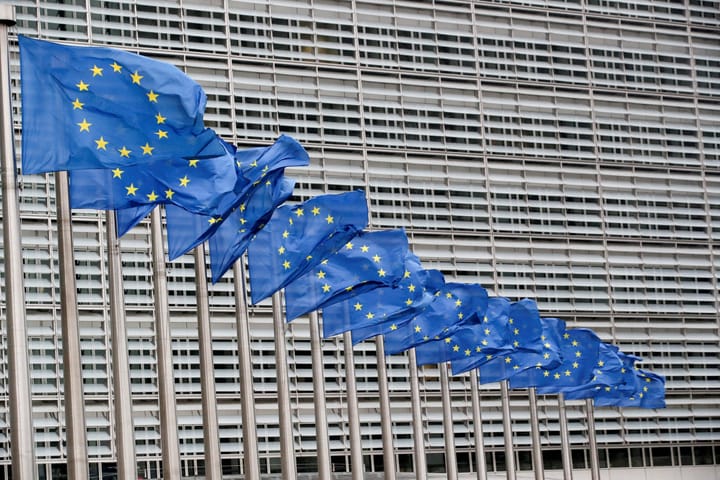What talks are on the table at the EU-Ukraine Summit?
An EU-Ukraine summit began Thursday in Kyiv and will last two days.

A few minutes every morning is all you need.
Stay up to date on the world's Headlines and Human Stories. It's fun, it's factual, it's fluff-free.
The backstory: The EU was established back in 1993, and countries are still joining the bloc. It takes years for a candidate country to join the EU, and the process can stall for long periods. To become a part of the EU, a European country has to meet the "Copenhagen criteria," which means having a stable democracy and legal system, a functioning, secure market economy, accepting all EU legislation and adopting the euro as currency.
More recently: The EU has been instrumental in Ukraine's defense against the Russian invasion. Right after the invasion started, Ukraine's President Zelenskiy petitioned for EU candidacy. Last June, the EU made Ukraine a formal EU candidate. And Ukraine has a timeline for joining the EU within the next two years. But EU countries don't want to over-promise on future membership prospects.
The development: An EU-Ukraine summit began Thursday in Kyiv and will last two days. Ukraine asked to address its future EU membership during the meeting. A draft statement will be issued at the event, but it doesn't offer much hope for Ukraine to join within its desired timeline. Instead, the document mentions moving the process forward once it meets the EU-mandated benchmarks. They will also talk about Ukraine's reconstruction at the summit.
Key comments:
"The EU will decide on further steps once all conditions specified in the Commission's opinion are fully met," the draft statement reads. "Ukraine underlined its determination to meet the necessary requirements in order to start accession negotiations as soon as possible."
Good to be back in Kyiv, my 4th time since Russia‘s invasion.
— Ursula von der Leyen (@vonderleyen) February 2, 2023
This time, with my team of Commissioners.
We are here together to show that the EU stands by Ukraine as firmly as ever.
And to deepen further our support and cooperation. pic.twitter.com/zf8fvoNKnG
"We are here together to show that the EU stands by Ukraine as firmly as ever," tweeted Ursula von der Leyen, the president of the European Commission.
"There is a need to apply a considerable methodology towards the assessment of the progress towards what is actually quite a complex process of membership throughout each and every single sector of the acquis," a senior EU official said to reporters. "It's very difficult to shorten that period so we will do that as with other candidates who are progressing the same. So we will do that absolutely with even more effort, of course, with Ukraine given the current circumstances but we will apply the same methodology because I think it's important that the legitimacy of the methodology be upheld."




Comments ()